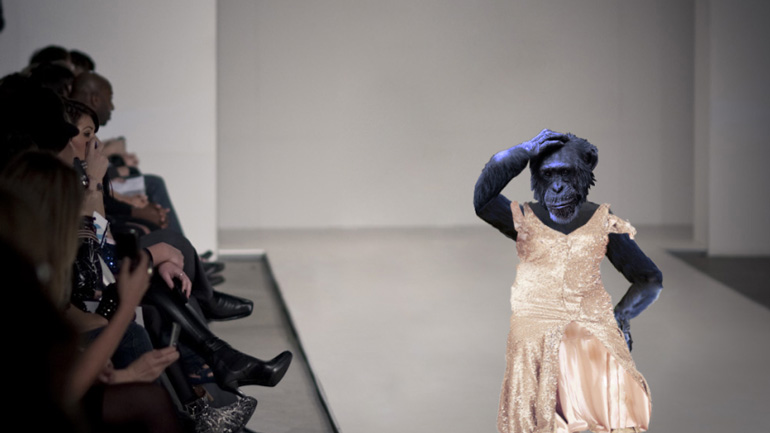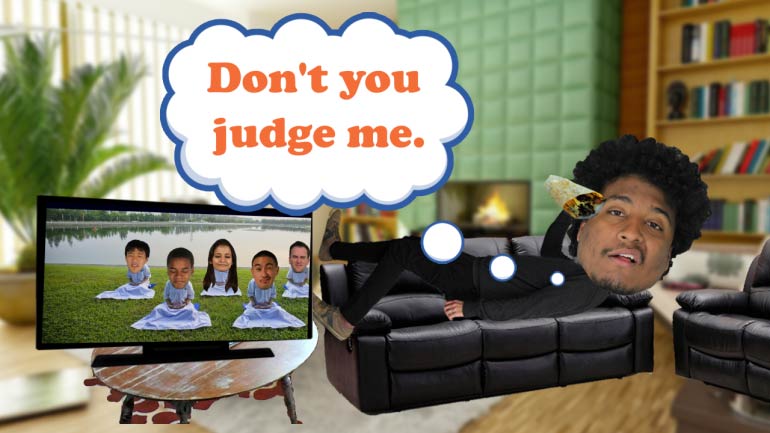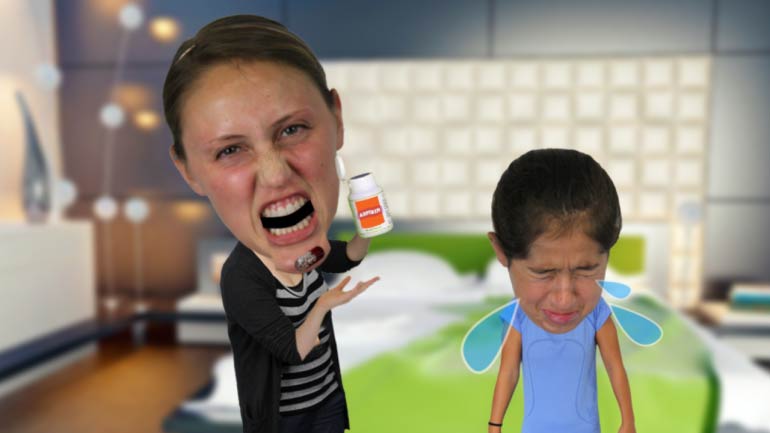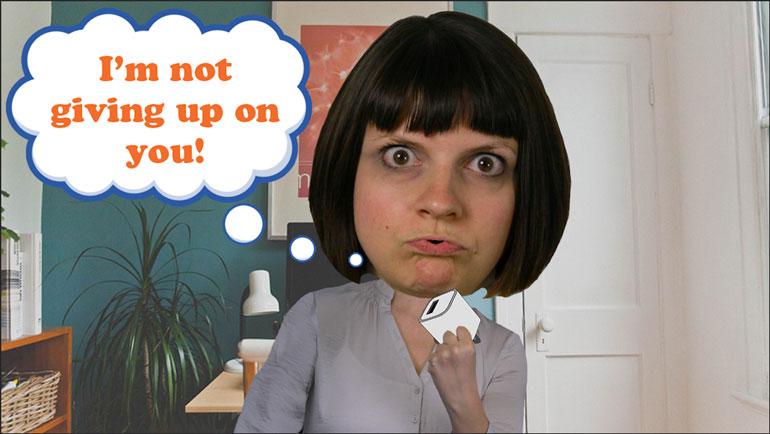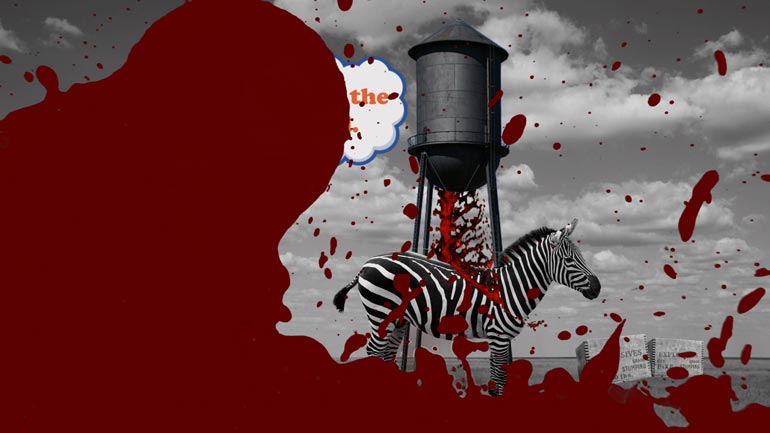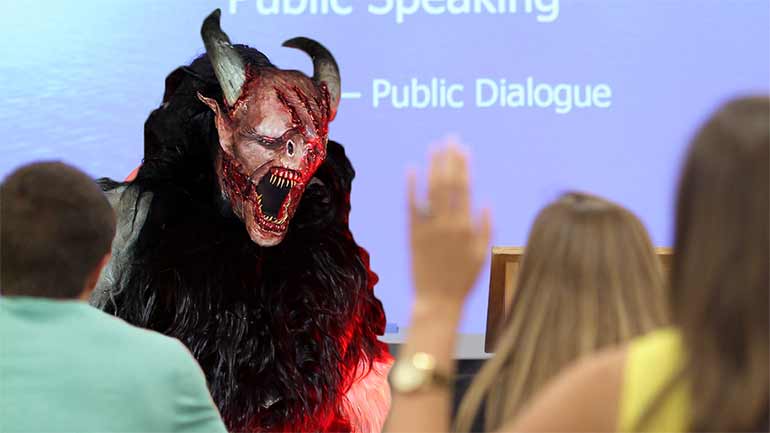ShmoopTube
Where Monty Python meets your 10th grade teacher.
Search Thousands of Shmoop Videos
Ethics in Research Videos 3 videos
AP Psychology 1.1 Research Methods. This information is all part of which of the following research processes?
AP Psychology 1.5 Research Methods. Which of the following best describes the researcher's behavior?
AP Psychology 2.1 Research Methods. What is this procedure known as?
AP Psychology 1.5 Research Methods 6 Views
Share It!
Description:
AP Psychology 1.5 Research Methods. Which of the following best describes the researcher's behavior?
Transcript
- 00:00
and here's your schmuck du jour brought to you by yoga the number one [People doing yoga by a lake]
- 00:07
way to exercise while moving as little as humanly possible yeah all right
- 00:12
here's your question a researcher is interested in whether or not exercise
- 00:15
can improve the mood of people diagnosed with depression she decides to teach a [The question being written out]
- 00:19
yoga class for 10 of her patients diagnosed with depression and will then
Full Transcript
- 00:24
compare their moods to 10 members in her usual yoga class the knowledge of the
- 00:29
patient's diagnosis unknowingly influences the behavior of the
- 00:32
researcher while she teaches the yoga class to her patient the instructor is
- 00:37
extra kind and patient with the group compared to the way she usually treats
- 00:41
members of the yoga class which of the following best describes the researchers
- 00:46
behavior potential answers on your Center find your light and well it's [Pause prompt appears]
- 00:57
just I'm away alright well start would be double-blind bias a basic blind [People sat looking at the sun rise]
- 01:01
experiment is the minimum standard for all tests involving test subjects a [Two crowds of blindfolded people, control group and test group]
- 01:06
blind experiment works a little something like this all of the group's
- 01:09
being studied that's even the control groups have no idea which group they're [Guy walks past with a magnifying glass]
- 01:13
part of this prevents any placebo effect from taking place however the researcher
- 01:18
knows which group is which so the possibility of bias yes they'll exist [The research appears in a lab coat]
- 01:22
however a double-blind experiment means that even the researcher doesn't know [Another research appears with a blindfold on]
- 01:27
which group is which so that they can't unintentionally influence the outcome
- 01:31
well this is a step further than the basic blind experiment and describes
- 01:36
exactly what didn't happen in a given experiment long story short be as an
- 01:40
easy no confounding variables describes an extraneous variables that correlates
- 01:46
in some way with both the dependent and the independent variables if you're [The definition of confounding bias is shown]
- 01:50
attempting to study the correlation between variables a and B it's probably
- 01:54
not too productive to bring see into the mix and throw everything off however see [The letter C drops down and forces A and B apart]
- 01:58
describes a piece of data not a behavior that means it's not our answer all right
- 02:03
what about demand characteristic Adam and characteristic with
- 02:07
context of psychology describes that tell that indicates to the participant [Definition of demand characteristics is shown]
- 02:12
exactly what the researcher is looking for potentially influencing the
- 02:16
participants behavior while the researchers extra creaminess might be
- 02:20
seen as a demand characteristic well we're considering your overall behavior [Researcher handing over money to a participant]
- 02:24
not a specific in so he isn't our answer what about experimenter preference that
- 02:31
sounds exactly like what's going on here but before we namaste and call it a day [Guy puts his hands together and walks off]
- 02:35
let's take a closer look experimenter preference is simply a made-up variation
- 02:40
of the actual answer see experimenter bias the unconscious act of a researcher
- 02:47
treating experimental groups differently is known as experiment or bias if a
- 02:52
researcher knows which research subjects are assigned to which group he or she [Research pointing to one of the groups]
- 02:56
may unconsciously skew the results a certain way by treating the depressed
- 03:01
group differently from the control the researcher is exhibiting experiment or [The researcher gives a prize ribbon to one of the groups]
- 03:05
bias now if you'd excuse us we have some yoga to get to have active yeah the [Guy watching yoga on the TV as he is laid on the couch eating]
- 03:10
burrito is part of yoga don't question
Related Videos
AP Psychology 1.1 Social Psychology. Which of the following best describes social psychology?
AP Psychology 1.1 States of Consciousness. Who conducted research on REM sleep deprivations?
AP Psychology 1.2 Cognition. Which of the following strategies would work best for generating new ideas?
AP Psychology 1.2 Sensation and Perception. The cells in the back of the eye that only see in black and white are called what?
AP Psychology 1.2 Social Psychology. What is the best choice for producing better productivity?
